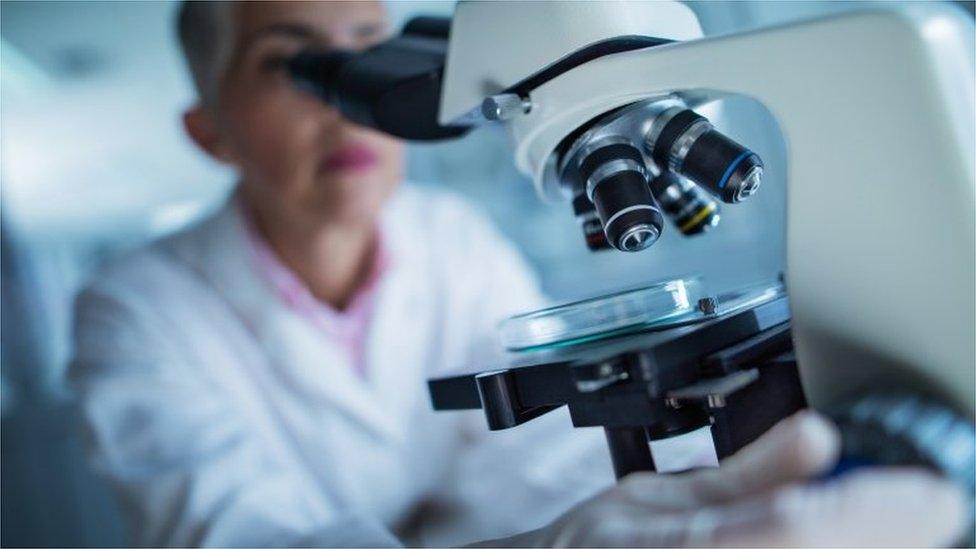Health: Apps and technology could help 'patient power'
- Published
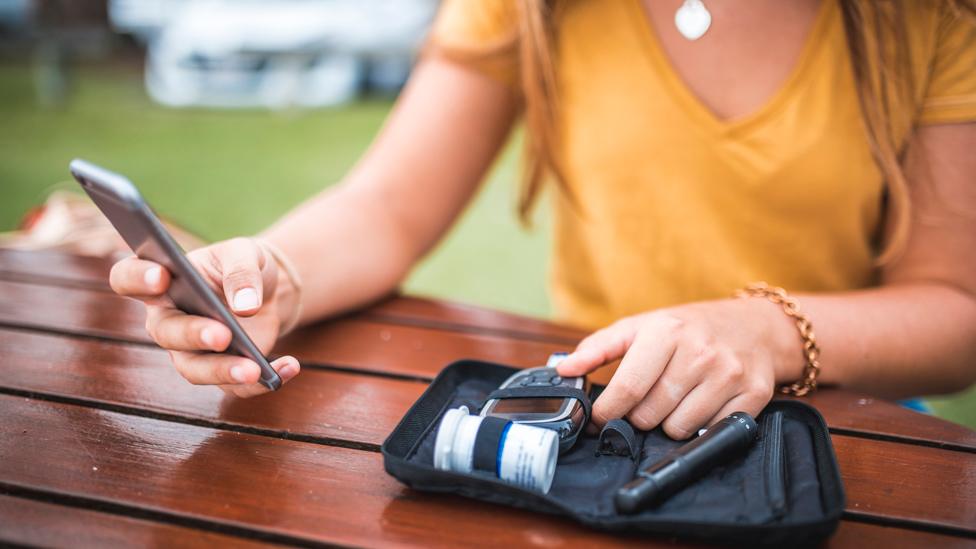
Apps are being developed to help patients manage their own medicines
Could apps and wearable technology soon mean patients in Wales take more control of their treatment?
Doctors and scientists are looking at ways for both drugs and conditions to be better monitored by patients themselves.
One Wrexham bio-tech firm has developed an app which helps patients manage their medicines better.
Another being used by cancer patients in Bangor gives real-time feedback on how chemotherapy is affecting them.
It is about developing technology which is easy to use for people - with the gadgets and apps designed to flag up issues to those who need to know.
Patients are being invited to bring ideas and experiences to a two-day event at Bangor University next week., external
Dr Chris Subbe, consultant in acute medicine at Ysbyty Gwynedd in Bangor, said: "When I see patients they often have half a dozen conditions, be on 20 lots of medication and we will do dozens of tests on them.
"It's much more difficult then to engage on whether something is good, bad, dangerous or safe.
"The person who probably knows best - what might have changed from previously - is the patient themselves or someone close to them, a relative or good friend."
He said the amount of information mad it ripe for mistakes, but new technology could help filter out the most important parts and feed it back to patients so they have more control.
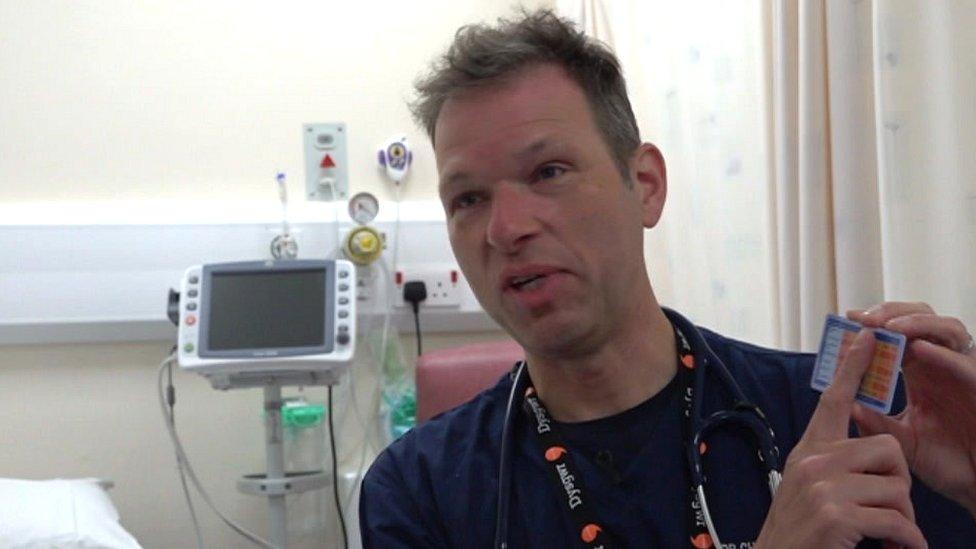
Chris Subbe with said bringing technology to healthcare professionals could "reduce cardiac arrest rates by up to 80%"
Dr Subbe already has a reputation as an innovator - he developed a scoring system for hospital staff on a simple plastic card - to help flag up changing conditions of patients.
It is now in use around UK hospitals and it has developed into an electronic early-warning monitoring system at his hospital.
He believes patients could also benefit from the scoring system themselves - particularly those with heart disease or chronic obstructive pulmonary disease.
"They've often got slightly abnormal vital signs but they will know what they are so a lot of patients buy their own saturation probe and know what their normal saturations are - so they know 'that's normal for me' and 'if it's not normal me', please do something."
Dr Subbe said they were exploring how patients could hold their own early warning score - at hospital or at home.
"You will carry something around with you, saying this is my normal score - and if I'm not around this area, I'm sick.
"We believe it will allow patients to be more active in the conversation about their own safety. But it might also encourage health professionals to do the right thing, to remind them.
"If the patient is able to remind them of any abnormality - that's very powerful."
He said it was a challenge for the NHS to keep up with technology but he believes working more closely with patients was the future and Wales could be ahead of the curve.
"What we think is by playing patients into this, we believe we are creating a system which is much more stable and is being driven by the person who has the most interest that it will be run reliably and safely."
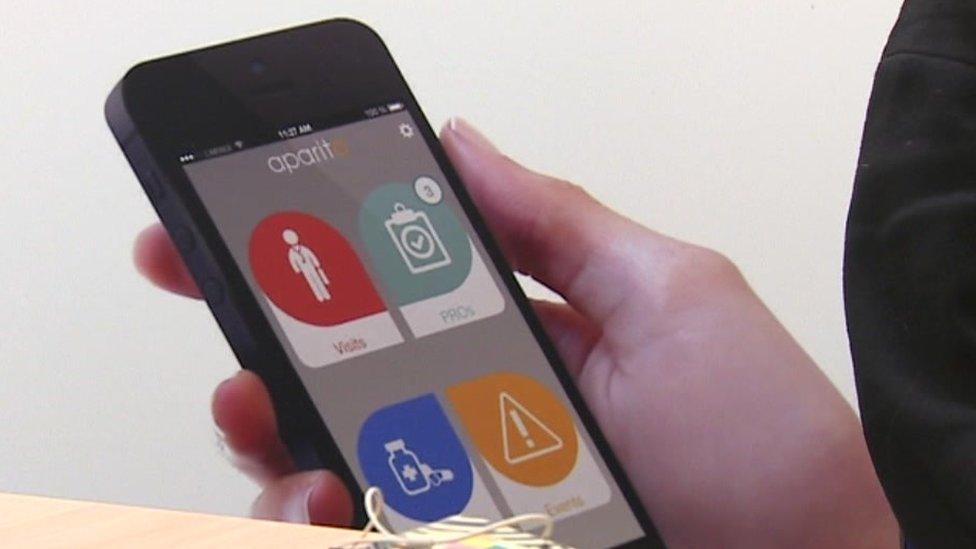
Apps are being developed to help patients manage their own medicines
An app to help you take the medicine
Aparito, set up four years ago in Wrexham, developed an app to help patients take their medicines properly, as well as wearable technology for children with rare diseases, to help track how new drugs are performing.
Chief executive Dr Elin Haf Davies, chief executive, a former children's nurse, said: "We know 50% of prescriptions are not taken as they're meant to be - the wrong dose, regime or even the wrong drug - so we provide the technology on the patient's own phone, so they have the right support to engage with the right mediation at the right time."
The app is linked to the mediation prescribed for them and gives alerts and notifications of when to take it, but also asks them why they have not if they miss a dose.
"Patients choose not to take their medication for lots of different reasons even though they've been prescribed it by their doctor," said Dr Davies.
"To try to understand that reason - whether it's side effects or perceived poor efficacy - and it's an important indicator in managing safety."
It is not available in Wales, but the company hopes discussions with the NHS will lead to this changing.
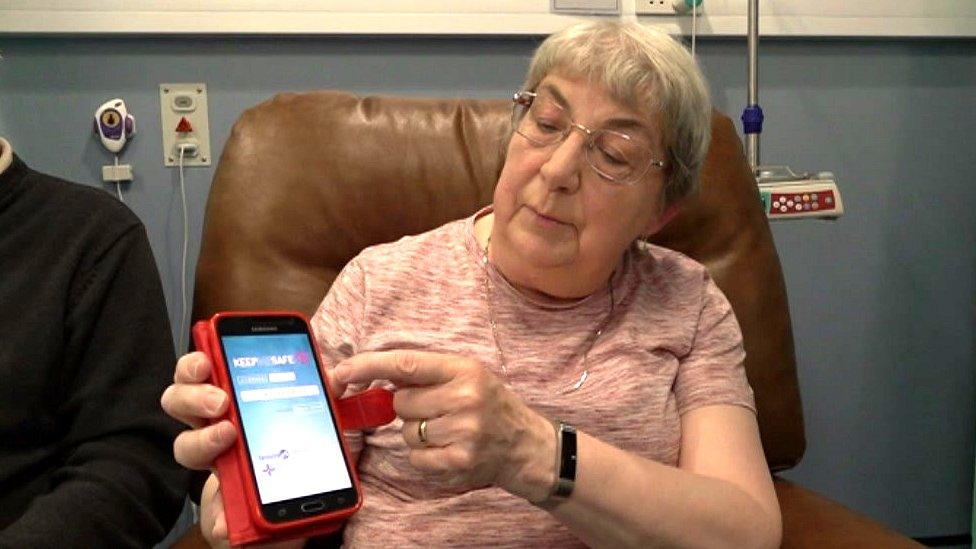
Glynnis Gaines said the app was very easy to use
Helping cancer patients
At Ysbyty Gwynedd, doctors are looking to new technology to monitor cancer patients on chemotherapy.
An app designed by a company in Caernarfon and funded by Tenovus, sets a reminder every day to ask patients how they are.
"It will signpost you if you need to get back in touch with the hospital," said oncologist Dr Claire Fuller.
"We want to know sooner rather than later if they have side effects - if we can get on top of it, we can make things better for the patient and make it safer and even avoid a hospital stay."
Chemotherapy patient Glynnis Gaines, from Llandudno, said: "If I can use it - anyone can. It reassures me and if I have any problems and I can answer 'no' in the list of questions and they can follow up.
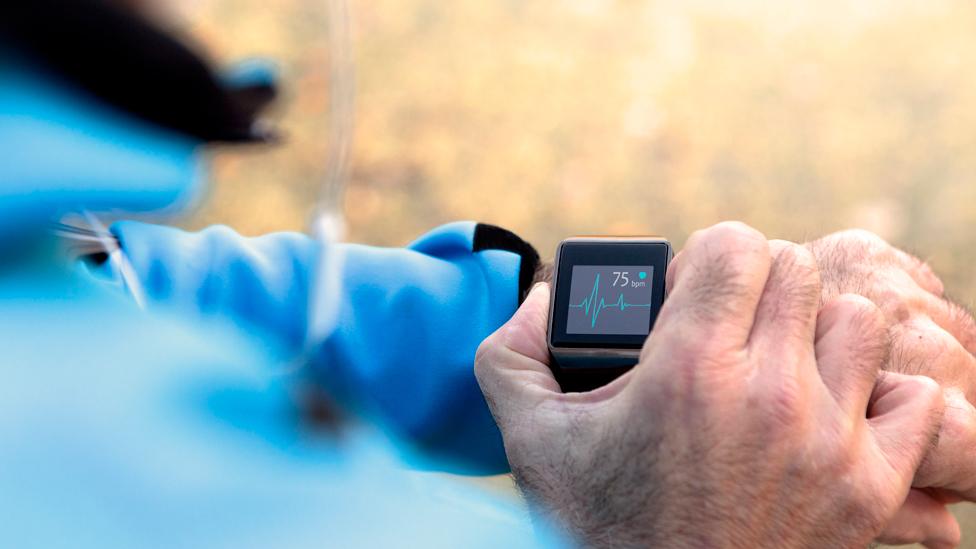
Dr David Evans said patients needed confidence they were being listened to
Will it replace your doctor?
Bangor University health lecturer Dr David Evans said it was important technology was used wisely and not as a substitute for dealing with doctors face-to-face.
"I've been a huge supporter of how we can use technology in the delivery of care, but it has to be done in the context of a social interaction," he said.
"The more we see if we can deliver healthcare through an app, it will miss out on the needs of real human beings. But certainly technology can aid our ability to engage more accurately with professionals."
Dr Davies said it would not mean doctors or nurses were replaced - only help them make more informed decisions at a time when they are stretched - and enable them to "spend more quality time with the right patients at the right time".
Dr Subbe said it was important "we don't leave people who are not digitally connected behind".
- Published21 March 2019
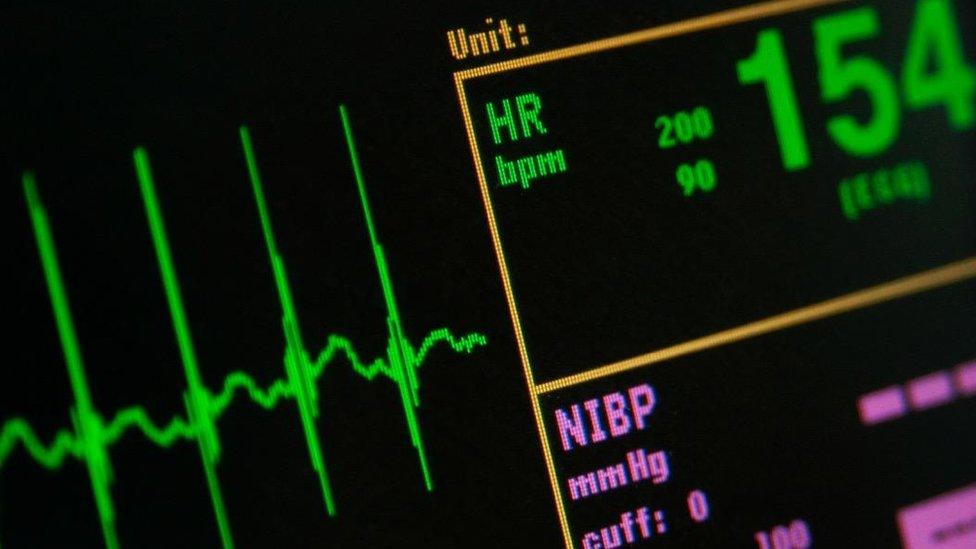
- Published5 July 2018

- Published5 July 2018

- Published7 July 2018

- Published20 May 2018
